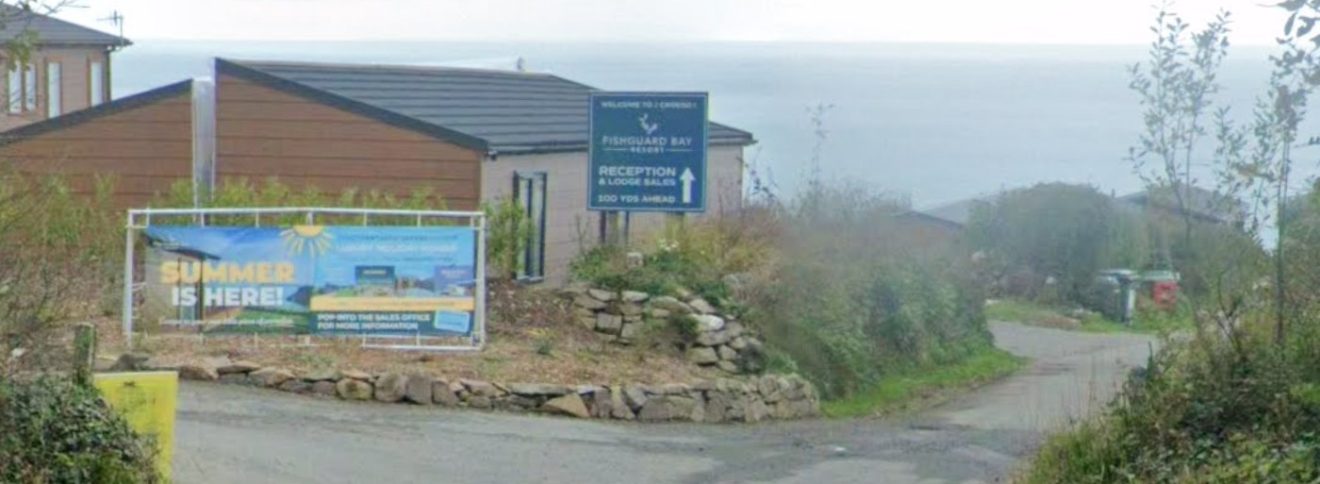News
Compensation after life-changing injuries

Popular Milford venue: Circles Nightclub (Now The Basement)
MARK TIERNEY has been awarded what he and lawyers see as fair compensation eight years on from a near-lethal assault, which left him severely brain damaged.
On the evening of December 2 2007 Mark Tierney was in Circles Nightclub, Milford Haven, and later that night he was involved in an incident with Christopher John Freeman, formerly from the town, who was said to have assaulted him using a vodka bottle, which caused the lifechanging injuries.
During court proceedings which followed, Freeman denied that he had used the bottle as a weapon and also pleaded not guilty to charges of attempted murder, grievous bodily harm with intent and causing GBH without intending to do so. However, he admitted to having offered the Circles nightclub manager £5,000 to delete video recordings of him coming and going from the premises.
THE EVIDENCE
Freeman claimed that the attack had taken place while he was walking home to his flat in the centre of the town, and said that he was first attacked by Mr Tierney, a point that was greatly contested by the prosecution.
The manager of Circles, Chris Thomas, told the court that, after the attack, a bouncer followed Freeman into the gents, where he saw two men with mobile phones in a cubicle and overheard a man saying that he needed to leave Wales that night as he thought he had killed Tierney.
The other man who was in the stall with Freeman, Mr Julian Walker, was also in court being accused of arranging for Freeman’s clothes to be washed in order to remove any forensic evidence. He denied a charge of undertaking an act tending to pervert the course of justice.
The prosecution said that, although Walker was not involved in the attack, he knew that Freeman had unlawfully assaulted someone.
During the attack Tierney sustained a severe, traumatic brain injury which means that he requires lifelong care.
Represented by law firm Hugh James, Mark was involved in an arduous eight year battle before he was finally awarded compensation for the ‘serious nature’ of his injuries and significant loss of earnings.
Mark Tierney, was formerly a pipe fitter from Barry, and had been working in Milford Haven. He was out socialising with friends and colleagues before the brutal assault took place during the early hours of the morning.
NO RECOLLECTION
The injuries Mark sustained were ‘so severe’ that he has no recollection of the incident.
He was found lying unconscious on his back by a passer-by in the street after the incident.
After being rushed to hospital he was treated at the Intensive Care Unit at Withybush Hospital for two weeks, and remained in a coma for a further four.
His level of consciousness was recorded as being 3/15 on the Glasgow coma scale (indicating deep unconsciousness) and CT scans revealed a left side scalp haematoma, nasal fracture and swelling of the brain.
Since then, Mark has suffered ongoing cognitive problems, intellectual deficit, behavioural problems, poor balance, speech and language difficulties.
As a result, his 25 year relationship with his partner completely broke down; he is unable to return to work and now requires care and support, which is provided by his three daughters.
Speaking about the incident, Mark said: “The attack has had a huge effect on my family. My youngest daughter, who was only ten years old at the time of the assault, was really affected by what happened to me and then also had to deal with the break-up of my marriage to her mum.
“On a personal level the attack has completely changed how I live my life. Before the attack I was very active, not only in my job but I regularly enjoyed having a kick around playing football which I will never be able to do again. Financially the attack has affected the whole family as I am no longer able to work and support my family.”
CARDIFF LAW FIRM
In 2008, Cardiff-based law firm Hugh James were appointed to represent Mark and his lawyers immediately made an application to the Criminal Injuries Compensation Authority (CICA). In 2010 Hugh James challenged the CICA when they stated that Mark was not eligible to receive an award on the basis that they considered that he had provoked the assault.
However after his lawyers obtained evidence to challenge this, Mark was deemed eligible to receive an award in principle. Hugh James also obtained two interim payments to ease the financial stress on Mark and his family whilst the case was ongoing.
INITIAL OFFER REJECTED
 In 2014, the CICA made a monetary offer to settle the claim but due to the seriousness of his injuries and lifelong loss of earnings, specialist solicitors Hugh James advised Mark to reject the offer on the basis that his claim was worth significantly more.
In 2014, the CICA made a monetary offer to settle the claim but due to the seriousness of his injuries and lifelong loss of earnings, specialist solicitors Hugh James advised Mark to reject the offer on the basis that his claim was worth significantly more.
Cari Sowden-Taylor, a Senior Associate from Hugh James’ Neurolaw team, explained: “Having pursued many CICA brain injury cases and assessing the true value of the claim we were able to advise Mark that we felt that the first offer from the CICA was low in light of the injuries he’d sustained and the financial losses he’d incurred as was likely to incur in the future.
“We therefore advised Mark to request a review of the decision but the CICA remained of the opinion that their offer was reasonable.
“Comprehensive evidence was therefore obtained and submitted to CICA in accordance with the appeal process and the matter was then referred to an independent tribunal panel who agreed with our arguments and as a result Mark was awarded nearly three times the amount that CICA offered him.
“We are delighted with the outcome for Mark and his family and feel that they have finally received some justice since the assault eight years ago.”
CRIMINAL CASE
Christopher Freeman, 37 at the time in May 2008, was cleared of more serious, alternative charges of attempted murder and inflicting GBH with intent.
Freeman, who had previous convictions for violence, was jailed for five years, of which he must serve a minimum of three and a half years behind bars.
The jury at Swansea Crown Court cleared fellow LNG worker Julian Walker, 36, of Rectory Avenue, Hakin, of doing an act tending to pervert the course of justice.
He was accused of arranging for Freeman’s clothes to be washed in order to remove any forensic evidence, knowing that Freeman had assaulted someone.
A third man, Peter Harll, 21, of St Ann’s Road, Milford Haven, had already pleaded guilty to carrying out an act tending to pervert the course of justice by washing Freeman’s clothes. He was jailed for eight months.
For legal reasons the amount of the compensation settlement cannot be revealed.
Business
Scheme to upgrade Dinas Cross holiday park withdrawn

PLANS to create a ‘five-star resort’ in one of Wales’s most popular holiday locations have been withdrawn.
In an application submitted to Pembrokeshire Coast National Park, Chester-based Boutique Resorts Ltd sought permission to relinquish 50 mixed touring pitches (caravans and tents) at Fishguard Bay Resort, Dinas Cross, replacing them with “36 high quality timber-effect holiday lodges”.
The application, recommended for refusal at the April 24 meeting of the national park’s development management committee, also included an increase in the site area of the approved park, a new entrance, a new reception lodge, staff and visitor parking area, with extensive environmental improvements.
The site, established in the 1950s, currently has planning permission for 50 static caravans and 50 mixed touring units, and it is intended 23 of the proposed lodges to be sited at the entrance, with a further 13 throughout the site.
Despite the proposals seeking a reduction in outright numbers, the applicants say the scheme would see an increase in the number of full and part-time jobs associated with the resort, from 29 to 62 jobs.
A previous application was refused in 2019, mainly on visual impact, ecological impact and highway impact, and the applicant has sought to address the issues raised by that refusal, a supporting statement says.
It adds: “The applicant purchased the site in 2014 with the intention to upgrade the site into a five-star luxury resort. This is very much still the applicant’s intention and whilst he has replaced some existing static caravans with luxury lodges, he also seeks to replace the touring caravans and tents with luxury lodges too.
“The resort is now considered one of the most desirable holiday parks on the Pembrokeshire Coast which is evident on the number of holidaymakers who return to the resort year on year. Such is demand for luxury lodges on the site, the applicant requires additional units.
“The applicant now wishes to move the resort further by replacing the mixed touring pitches with luxury lodges but also provide a much-needed new entrance into the resort.”
Objections to the scheme were received from the National Trust, the national park’s strategic policy and ecologist, and the South Wales Trunk Road Agency, and 12 members of the public, along with one letter of support.
The application was recommended for refusal for reasons including it was “likely to have a significant detrimental impact on the special qualities of the National Park by intensifying the visual impact and intrusion of a large static caravan site within the extensive coastal views of this section of the National Park,” it would represent an intensification of the site, and was likely to “have an unacceptable impact on neighbouring residential amenity through increased noise and traffic movements”.
The application, listed for consideration by park planners next week, has since been withdrawn.
News
First step towards council tax and business rate reform

MAJOR reforms to council tax and business rates have cleared the first hurdle in the Senedd.
MSs backed the general principles of the local government finance bill, which would introduce a five-year cycle for council tax revaluations from 2030.
The bill would lay much of the groundwork for Welsh Government proposals to redesign council tax, with current bands based on property values from 2003.
It would also increase the frequency of business rates revaluations from five to three years.
Rebecca Evans told the Senedd the bill forms a vital part of the Welsh Government’s wider programme of local tax reform.
Wales’ finance minister explained the bill would enable ministers to modify business rate relief exemptions and the multiplier to support policy priorities.
John Griffiths outlined the local government committee’s stage-one report recommendations aimed at improving the bill and guarding against unintended consequences for taxpayers.
Mr Griffiths explained that the bill provides a framework for future policy changes to be made by the Welsh Government via secondary legislation.
The Labour MS, who represents Newport East, said the committee heard concerns that this limits opportunity for public engagement and scrutiny by the Senedd.
Welcoming the Welsh Government’s commitment to retaining the single-person council tax discount at 25%, he highlighted wide-ranging powers in the bill over vital reduction schemes.
In terms of business rates, the committee chair said MSs heard broad support for a move to three-yearly revaluations, which he described as a reasonable, proportionate cycle.
Peredur Owen Griffiths, who chairs the finance committee, backed the bill’s key aim to create a fairer, more flexible system.
The South Wales East MS welcomed reassurances from the Welsh Government that the intention of council tax reforms is not to raise more revenue.
“Given the regressive nature of council tax, we support the aim to make it fairer without affecting the tax base,” he said.
Plaid Cymru’s finance secretary said the proposed powers will reduce the Welsh Government’s reliance on UK bills to make changes.
Alun Davies, a Labour backbencher, warned that delegated powers in the bill risk diminishing the role of the Senedd.
Sam Rowlands, the Tories’ shadow local government secretary, raised concerns about the bill putting more power in the hands of the Welsh Government rather than councils.
He warned the bill is a stepping stone towards higher taxes through the back door, saying: “This bill in and of itself does not necessarily do that but it certainly enables future changes.”
The former leader of Conwy council, who represents North Wales in the Senedd, called for reforms to the formula used to allocate funding to Wales’ 22 councils.
Raising concerns about digital exclusion, Mr Rowlands opposed a provision in the bill which would remove a duty to publish council tax notices in local newspapers.
He said: “We believe it’s a really important part of the democratic process in local government, especially in relation to transparency.”
Backing a revaluation of all 1.5 million properties in Wales, Labour MS Mike Hedges described council tax as fundamentally unfair.
He said: “Someone living in a property worth £100,000 pays around five times as much council tax relative to the property value as someone living in a property worth £1m.”
Mr Hedges, who represents Swansea East, also opposed the removal of the duty to provide council tax information in newspapers.
On business rates, he said: “I’ve always supported the returning of them to local authorities. We don’t need an all-Wales system; let each local authority set its own business rates.”
Ms Evans told the chamber she intends to make a statement on the next steps for council tax reform before the summer recess.
The Senedd agreed the general principles of the reforms without objection, and the bill now moves to stage two which will see MSs consider detailed amendments.
News
Senedd backing for major infrastructure approval changes

THE SENEDD agreed reforms aimed at streamlining the consenting process for significant infrastructure projects in Wales.
MSs passed the infrastructure bill, which will establish a unified process, known as infrastructure consent, for major on and offshore projects.
Infrastructure consent will replace existing procedures for energy, transport, waste, water and gas projects above a certain size or capacity threshold.
Julie James, Wales’ housing, local government and planning secretary, argued the bill will introduce a modern and simplified process.
She said the bill will play an important part in moving towards net-zero emissions by 2050 by enabling consent for renewable energy projects in a timely but robust manner.
She told MSs: “Not only will it improve the competitiveness of Wales as an attractive place for investment and jobs, it will also empower local communities and other key stakeholders.”
Ms James said it is a “process bill” with much of the detail to follow in secondary legislation and a significant amount of work ahead to ensure a smooth implementation process.
She told the chamber that secondary legislation will ensure the infrastructure consenting process operates effectively, efficiently and with maximum engagement.
She explained that two consultation papers will be issued by late May, with the first focused on pre-application consultation processes and the second centred on fees.
A third and final consultation paper will follow this year outlining the whole new process.
Janet Finch-Saunders, the Conservatives’ shadow secretary, described the reforms as hollow and lacking in fundamental details.
She argued this is in complete conflict with the bill’s core aims of delivering a streamlined process and empowering communities to engage.
Ms Finch-Saunders warned that the bill is missing a vast amount of details, including on how open-floor hearings will be triggered and time limits for making decisions.
She said: “It is apparent to any reasonable person that this bill does not represent anywhere near what it promises to do, and that is a streamlined and unified process.
“The reality is that so much information is omitted that we do not know how these processes are going to work in reality.”
The Aberconwy MS added: “Clearly, the legislation is not as I believe it should be. We do not believe that it delivers a robust process for Wales.”
Delyth Jewell stressed the importance of striking the right balance between tackling the climate emergency and safeguarding the natural world.
Plaid Cymru’s deputy leader said planning processes must be more accessible to the public.
“Too often communities are left feeling disenfranchised and marginalised when decisions about infrastructure are made without their say,” she warned.
Calling for a coal-free future for Wales, Ms Jewell reiterated her party’s calls for coal to be removed from the list of significant infrastructure projects in the bill.
The South Wales East MS said: “We will keep pushing for a number of changes in regulations. But passing the buck and allowing this bill to fail would be a retrograde step.
“Let this be the first step in a journey towards democratising our planning process. There’s an awful lot more that we need to do, but it can at least start here.”
Ms James reiterated that many details were deliberately not included “on the face of the bill”.
She said: “If you were to put that into primary legislation, it would become out of date so fast that it wouldn’t make the end of the year.
“So, it is very important that we put those things in secondary legislation.”
Before the debate could be held, the King’s consent had to be sought because the bill could impact the Royal Family’s interests, such as the Crown Estate.
MSs agreed the stage-four vote on the final text of the bill, with 36 in favour and 15 against.
The infrastructure bill now enters “post stage four”, a four-week period during which it could be challenged by the UK Government but it is expected to move on to Royal Assent.
-

 Business2 days ago
Business2 days agoBluestone National Park Resort payments expected to end
-

 Community4 days ago
Community4 days agoThe Harbourmaster: Special rail excursion draws crowds to Milford Haven
-

 News3 days ago
News3 days agoDragon LNG ‘monitoring’ scrap car blaze in Waterston
-

 News4 days ago
News4 days agoSearch for Luke, 19, reported missing in the Pembroke Dock area, continuing
-

 News16 hours ago
News16 hours agoSearch for missing teenager Luke continues at Pembroke Dock
-

 News5 days ago
News5 days agoMajor search in the area of The Cleddau Bridge and Hobbs Point
-

 Crime2 days ago
Crime2 days agoEstate agents admit health and safety failings following fatal market incident
-

 News21 hours ago
News21 hours agoMan jailed after scarring police officer in Narberth altercation


























